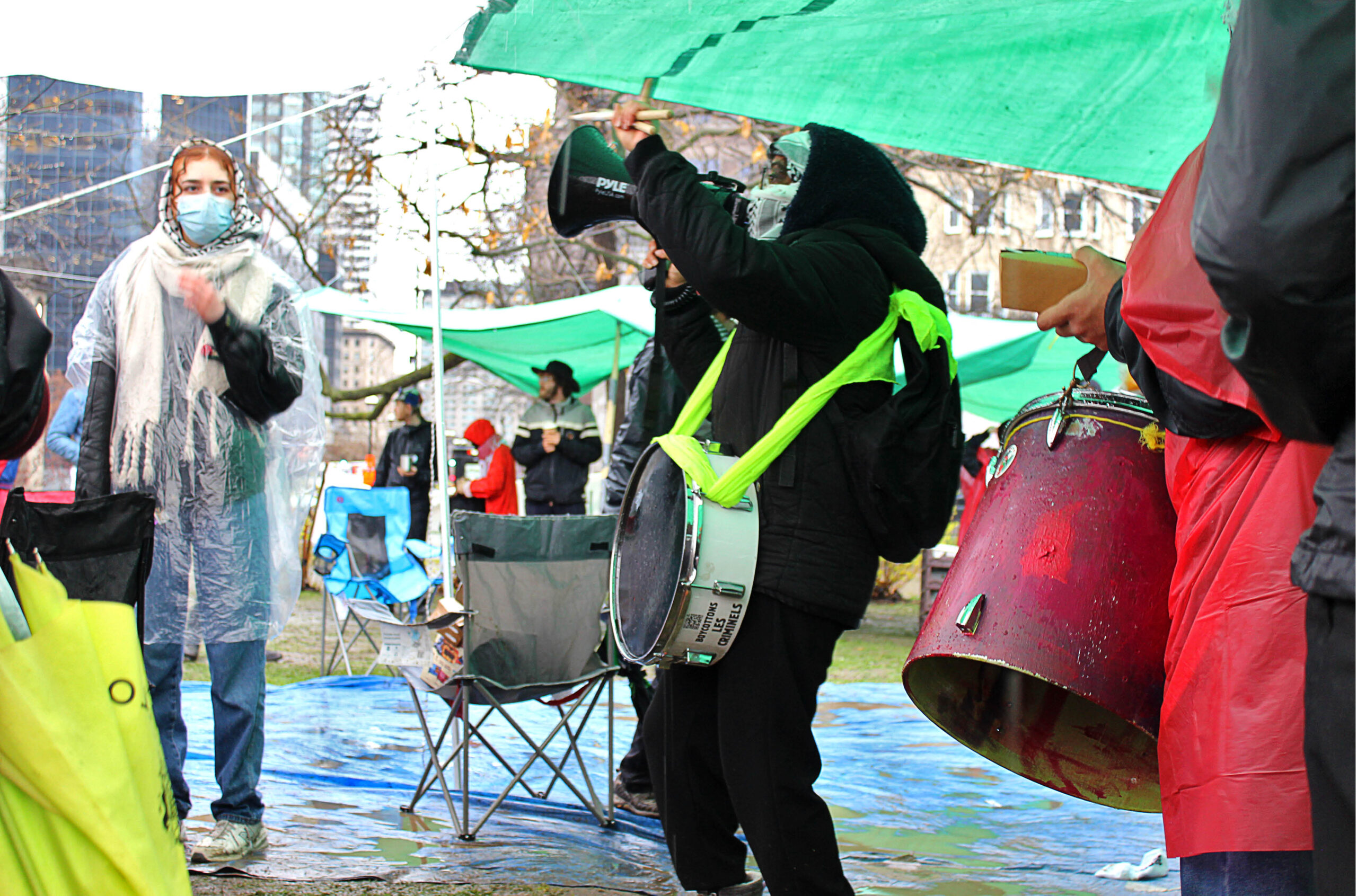Carleton U, the police, and the new academic isolationism
The decision by Carleton University criminologists to eliminate student placements with police and correctional services is ill-advised.

Recently my friends and colleagues at the Institute of Criminology and Criminal Justice at Carleton University introduced a series of initiatives designed to address white supremacy, systemic racism and settler colonialism. Many of their plans are laudable, including new student bursaries and anti-racist education measures. One particularly worrying development, however, has generated considerable attention: their decision to eliminate the opportunity for undergraduate students to do placements with either police or correctional organizations.
Such placements have been part of criminology programs in Canada for decades. Typically, they involve students receiving credit for volunteering with different social or criminal justice organizations, such as the police, prison reform groups, victim services organizations, halfway houses, homeless shelters, and the like. While such programs can attract students who want to work in the criminal justice system, neither the placements nor the programs themselves are job training. Instead, placements are one part of a broader liberal arts education and are designed to give students a realistic understanding of the topics they are studying.
As someone who graduated from Carleton University 30 years ago – where I completed two placements in this specific program – I find this current divestment strategy ill-advised. Before I detail why I believe this is the case, it is important to stress that I unreservedly support the racial justice agenda. I too watched in horror as George Floyd was murdered and have been encouraged by the surge in anti-racist activism. It is well past time to reconfigure policing and criminal justice. Unfortunately, Carleton’s placement decision is not a means to achieve that goal.
1. Carleton’s decision amounts to a type of extreme institutional isolationism based on their stated claim that policing and corrections are impervious to reform. Such resigned pessimism is at odds with a long list of developments. Consider, for example, that a) the staggering incarceration rate in the United States has been declining since 2010; b) the police in my home city of Edmonton has established the award-winning Zebra child advocacy program, which pairs police officers with child protection and health service officials to support children who have experienced sexual and other forms of violence; c) 10 years ago, this same organization created a crisis team, where health care workers and police officers work in tandem to respond to calls for police service that might involve mental-health situations; d) findings from my research team at the University of Alberta Prison Project have recently resulted in the police introducing victim services programming to persons housed in provincial prisons; and e) Correctional Services Canada has implemented in-prison needle-exchange programs as a harm reduction measure. Admittedly, none of these developments represents a panacea for the pervasive problems with the criminal justice system. Still, all of them are the result of activist critiques combined with sustained and engaged reform efforts. Trying to introduce progressive change in the criminal justice system can be prolonged, uneven and routinely resisted, but such institutions are certainly not “impervious to reform,” and acknowledging that fact does not make someone a police apologist.
2. Efforts to transform the criminal justice system will have a higher chance of success and will be more attuned to assorted forms of marginalization and oppression if they include the engaged pragmatic research and assessment efforts of criminologists. Such input can come from individuals who have received an education in criminology (and other aligned disciplines), as well as community members most affected by policing and police violence. Carleton’s extreme isolationist orientation, however, leaves it to other people to do the heavy lifting of engaging with these organizations to develop, initiate and assess concrete, pragmatic measures designed to reorient their practices.
3. Criminology instructors typically provide students with both a critical and empathetic understanding of topics such as marginalization, substance misuse, structural inequality, institutional racism, the dynamics of institutional and interpersonal power, patriarchy, the pernicious effects of colonization, and much more. As such, it is precisely those students who should be working in a criminal justice system which shows no signs of disappearing.
4. The faculty members at Carleton indicate that they will continue to research the real-world operation of police or corrections. One should be suspicious of such a claim. A considerable percentage of the foundational social scientific research on the police and correctional institutions has necessarily involved an arrangement whereby academics acquire research access to those organizations. Such research has produced some of the most influential critical insights we have on policing and corrections. However, even criminal justice officials who honestly desire to work towards change would likely decline to collaborate with researchers who embrace Carleton’s extreme divestment strategy, as it is reasonable to anticipate that any research conclusions produced by individuals who advocate for such a position would be politically preordained.
5. A subset of progressive criminologists appears to be uncomfortable with what they see as advancing students’ plans for careers in the criminal justice system. The university, however, is a publicly funded institution that aims to educate all qualified students. We are not in the regressive business of excluding students or limiting their opportunities to learn because a faction of the professorate might not support those students’ (continually shifting) career aspirations and political positions.
6. The assumption that criminology students are the main conduit for recruits to the police and corrections is wrong. My experience over the past 20 years has been that most criminology placement students never end up working for the police or corrections. Indeed, the vast majority of university-educated students who do enter into policing and corrections do not come from criminology programs. Instead, most are graduates from a spectrum of liberal arts disciplines, and increasingly have backgrounds in computer science, business, Indigenous studies, education, law, or languages. Our local police service recently hired a woman with a PhD in zoology. Academics who do not want to affiliate with students who end up working in policing and corrections need to cast their eyes at the university more broadly.
7. If we all embraced Carleton’s isolationist impulse, one wonders what other programs and initiatives we will restrict because they are connected with politically unpalatable organizations. Should we eliminate the units in engineering departments whose graduates work in environmentally harmful industries? Or should we divest from pharmacological research in light of the hundreds of thousands of deaths attributable to the opioid crisis knowingly fostered by Purdue Pharma? More to the point, is it time to shut down law schools given that they turn out thousands of public prosecutors who help incarcerate a disproportionate number of racialized individuals? And what if the political situation changes? One can easily imagine conservatives gleefully reproducing Carleton’s isolationist strategy to try and eliminate departments of sociology, or social justice, or African studies because graduates from such programs are disproportionally involved in the Occupy Movement, or Black Lives Matter or Antifa – all of which are currently being characterized as “terrorists” by segments of the political Right.
Carleton’s placement decision arises from understandable frustrations, but it does not advance the social justice cause. To confront the racism and marginalization endemic to the criminal justice system will require sustained and often challenging forms of engagement between scholars and practitioners. My hope is that we can all respectfully work together towards this shared goal.
Kevin Haggerty is a professor of criminology and sociology at the University of Alberta.
Featured Jobs
- Business – Lecturer or Assistant Professor, 2-year term (Strategic Management) McMaster University
- Psychology - Assistant Professor (Speech-Language Pathology)University of Victoria
- Canada Excellence Research Chair in Forest Biodiversity Conservation (Full Professor)University of New Brunswick
- Canada Excellence Research Chair in Computational Social Science, AI, and Democracy (Associate or Full Professor)McGill University
- Veterinary Medicine - Faculty Position (Large Animal Internal Medicine) University of Saskatchewan













Post a comment
University Affairs moderates all comments according to the following guidelines. If approved, comments generally appear within one business day. We may republish particularly insightful remarks in our print edition or elsewhere.
5 Comments
As a serving police officer, a PhD candidate and currently being in charge of research in my agency I appreciate this commentary. We often talk that policing must move beyond reform and evolve with a view to be focused on community safety and well-being in a public health model. Policing and the justice system as an entity must work hard to address issues of systemic racism and bias that occur. This evolution can not occur without strong relationships, with multiple disciplines, in academia. We must move forward with a research mindset to be evidence based.
As a criminologist who does research that often involves police, I sometimes feel the need (particularly of late) to remind folks that there are lots of ways to achieve social justice ends. Some of these ways involve working outside of formal state-based systems, while others involve direct engagement with the system and system players. No one approach is better than the other – both are necessary and important means of addressing pressing social issues, building the knowledge base, and helping to bolster evidence-based policy and practice. Further, I believe that it is my job to teach my students how to think, not what to think – and limiting placement opportunities smacks of the latter.
As a researcher in the Canadian CJ system, Carleton’s Initiatives are extremely ill-sighted and come off as ivory tower supremacy – I know what’s best from my privileged ivory tower. The real-world isn’t black and white, and the police and corrections aren’t institutionally racist. How could Carleton possibly know if police and corrections are systemically racist if they do not have the research access to conduct multi-year longitudinal studies to make that claim?
Carleton’s decision to put their heads in the sand because of their perceived moral superiority is the antithesis of the scientific method. The scientific method seeks to find truth based on data. Carleton’s decision is not only anti-academic, but it’s also pure hubris. Criminal justice agencies should in turn immediately restrict all research activities with Carleton’s Criminology Department because the department’s political stance. Why conduct research with researchers who are not open?
Dr. Haggerty is correct to assume that Conservatives might try to use Carleton’s decision to try and remove these departments, or at least reduce their budgets. Universities have operated for centuries for the pursuit of truth. Carleton’s agenda here appears to pursue politics, and public tax dollars should not be funding it. Moreover, why would criminal justice agencies hire students from these disciplines upon graduation if the professors are teaching them politics and what to think, rather than the truth and how to think?
A well-argued and convincing point of view. The Carleton U decision is difficult to understand. If the decision-makers think policing has become so repressive wouldn’t an obvious strategy be to assign even more students to challenge police thinking in a constructive and helpful way on such matters as systemic racism? As it is, the university has lost an opportunity to influence the issue and looks as if it is only concerned with distancing itself from a sticky issue.
As a professor at Laurier University and program coordinator for the policing and public safety undergraduate and graduate programs (and retired police officer), I completely agree with Professor Haggerty. Withdrawing from the conversation and refusing to engage in creating positive change, yet criticizing from afar is hypocritical and elitist. As Henry Ford once stated “Don’t just tell me the problem, tell me the solution.”